
LANGUAGE & LOCATION

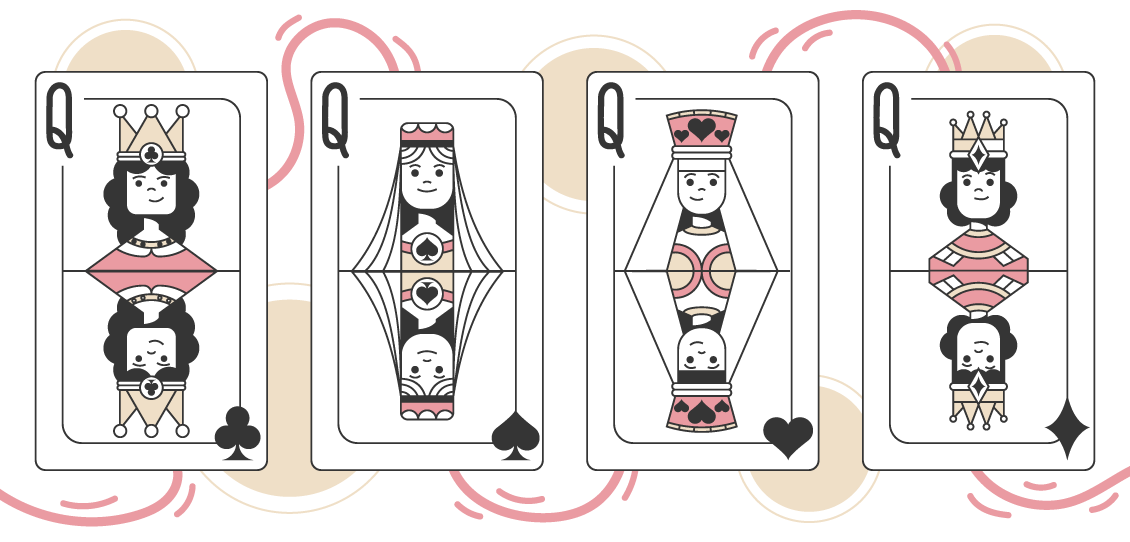
Gambling addiction knows no age, race, or gender. Why, then, if it affects everyone equally, treatment and prevention remain the place of diversion? Reports and studies still show insufficient insights into female gambling addiction. Does this mean women don’t gamble – or just don’t reach out often enough for help?
Casino Chick, the first women-centric website for female gamblers, explores the relationship between women and problem gambling, dives deep into research conducted on female gambling problems, and offers insight into female gambling addiction.
Before we begin the discussion, let’s see some quick facts about female gambling addiction.
The most harmful thing that you can say to a woman suffering from gambling addiction is that ‘women simply don’t gamble’. They most certainly do.
Women play casino games, especially in today’s world. The surplus of online casinos and the rise of digital gambling, in general, has fortified women in the casino industry. Unfortunately, female gamblers’ motivation and habits remain less known than those of the male customer base.
So, why women gamble?
One of few reports on female gaming states that women visit casinos and play games for several reasons:
Their motivation for playing casino games indicates how they behave when playing, which games they pick, and how they deal with the nuances of compulsive gambling.
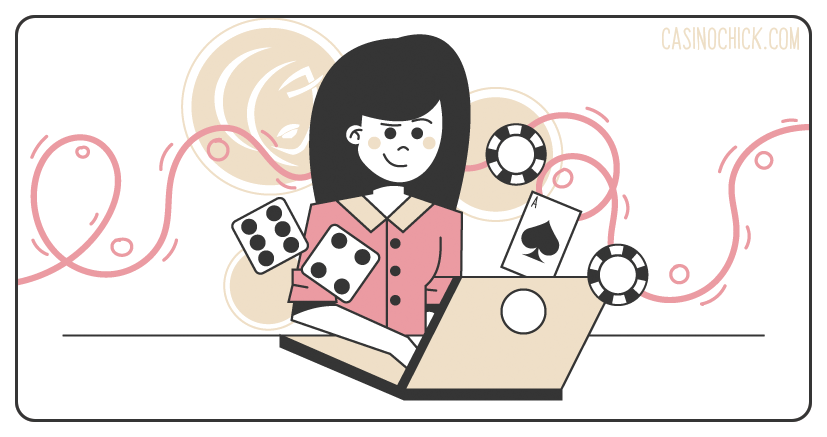
Experts say that, for many women, it all starts with boredom. They enter casinos to play casual games – slots, keno, bingo, and other speciality games – to have a bit of fun. They usually stay away from high-stake games like blackjack and poker. For most women, casual games of luck are more entertaining than skill-based blackjack and poker.
As most girls tend to return to slots or similar games for their fun nature, excitement is also a factor. Don’t forget that modern online slots are a miscellaneous collection of themes, features, and eye-catching visuals. However small it is, a victory is delicious – it boosts elation and can quickly get you hooked on the feeling. That thirst for excitement can be labelled as action gambling.
However, one of the key things that stands out when we talk about female gamblers is escape gambling. Women also use casino games as a form of escapism.
Escape gambling refers to gambling done to avoid distress or any feeling of psychological/emotional discomfort. The act of playing casino games and wagering is just a means to an end for the player – they focus more on avoidance of their personal problem than the actual act of gambling. That is why it is more dangerous action gambling.
Although men gamble to escape as well, escape gambling is mainly tied to women. Typical characteristics of escape gamblers include:
Avoiding stress or maybe even more significant problems in one’s life by gambling online can create even bigger problems for the player. Escape gamblers tend to lose themselves in the cyclical spinning of slots and repetitive rounds of speciality games. That way, besides not facing and dealing with the real issue, the person develops unhealthy gaming habits, which is another problem.
Women gamble too. It seems almost absurd to emphasise that – especially in 2021 – but women are a significant part of the gambling industry. But why are women grossly underrepresented when talking about problem gambling demographics?
This question has manifold answers.
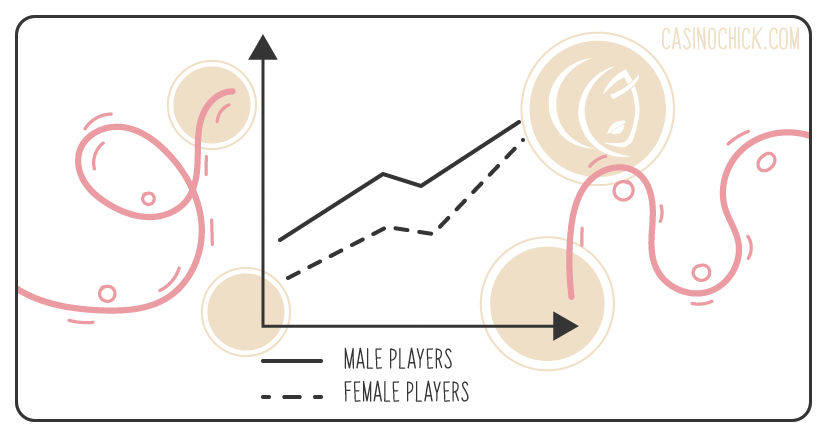
One explanation is the lack of research about women – done by women. For decades, male scientists have been doing the work in the field, which must have influenced how female gambling addicts were perceived. Until 2000, gals who played casino games and manifested compulsive gambling tendencies were treated as an anomaly (male gamblers’ behaviour being the norm) rather than a different side of the coin.
Nowadays, scientists – including female experts – are casting more light on the habits of female players in casinos. Thanks to their efforts, we know that women prefer speciality games, luck-based rather than skill-based games and that they are more escape gamblers than action gamblers.
The number of females with compulsive tendencies has risen as well. In April, the UKGC released its market overview report for March 2021 consumer research. According to the report, 16% of female players who have played in the last 12 months report increased their gambling frequency since March 2020. Therefore, the pandemic has introduced new players to online gambling and has encouraged existing players to increase the pace of gaming – many of them being women.
UK’s GamCare has started its Woman’s Programme to help women with addiction. According to their Year One Report for 2019/2020, the percentage of female players contacting the National Gambling Helpline grew from 17% (2018) to 30% in only two years.
However, the report highlighted that the biggest problem lies in the lack of awareness about support and treatment services for players and affected others. Women also tend to think such services and initiatives are for male punters only, which prevents them from reaching out and asking for help.
So far, we’ve established that woman gamblers exist and are slowly overtaking the industry. A growing base of female players is registering at online casinos, which means only one thing – more and more women are playing casino games.
Does that also mean more women are suffering from harms brought by gambling? It would be logical to assume so. However, experts say women are reluctant to ask for professional help because of stigma and fear.
The stigma that women face when they think about contacting someone to talk about their problem with casino gaming can be overwhelming. Fear of being ridiculed, shame in having gambling problems, and the stigma surrounding problem gamblers are three main blockers that prevent girls from asking for help.
Some of the things that women listed as their major fears:
On the other hand, they feel shame. In general, a woman in society occupies a different position than a man. Women are generally perceived as the caregivers and nurturers tasked with keeping the family together and taking care of them. If a woman falls under the influence of gambling, it would be a bigger disgrace than if she were a man.
To sum it up: women fear asking for help because they think they will be ridiculed, shamed, and disgraced. Losing the family’s trust is a significant factor, while losing children and getting divorced is an even bigger fear for many female addicts.
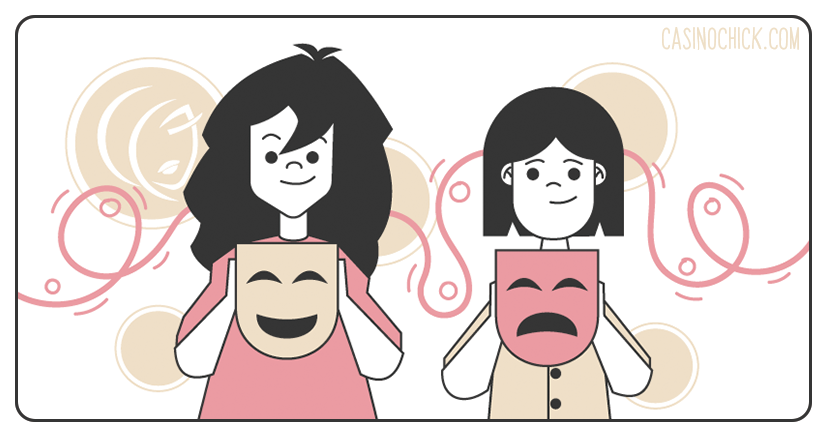
A stereotypical representation of female players does not help with raising awareness about women and problem gambling.
Most movies and TV shows portray women only as accessories in the casino. Julie Assouly, an Associate Professor at Université d’Artois, discussed the relationship between female gamblers and cinema in her article “Gambling and women don’t mix”: Female Gamblers and the American Dream in Film. According to Assouly, female protagonists in movies are divided into good luck charms or helpers, trouble-makers, and purveyors of moral standards. Should a woman be cast in a leading role, she’s more likely to portray an addict or an entrepreneur. The rarest to happen is a female portraying a professional gambler.
Emphasising female addicts and not giving enough female professional gamblers more place under the spotlight breeds stereotypes and bias.
For many girls in the industry, including Chick’s team, watching a casino scene where a woman is brought only as a femme fatale eager to fool the main protagonist (almost every Bond movie ever) is outdated and becoming repetitive.
A new perspective in which such prejudiced view of women in a casino is reduced if not eliminated is a much-needed change. Without it, we will remain in the same vicious cycle of stigma.
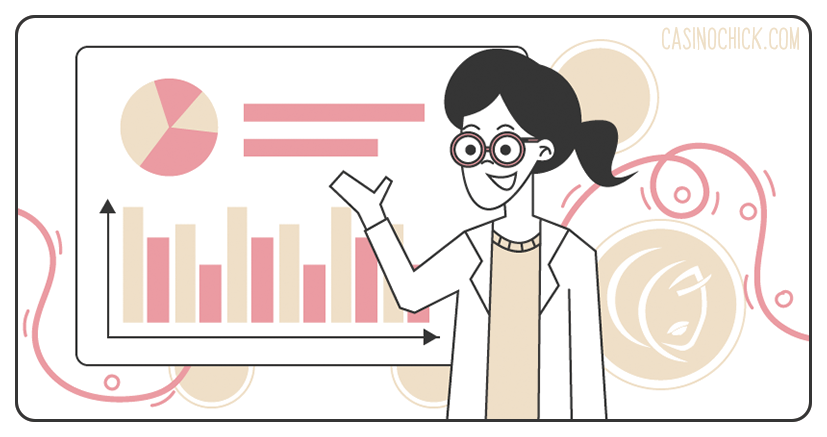
We mentioned that the scarcity of research done on women’s problem gambling is due to the predominantly male cast of scientists so far. However, things are looking up.
The UKGC is conducting studies, GamCare is offering consultations and chatroom, while the US National Council on Problem Gambling hosted webinars about women’s gambling addiction. In Australia, Prof Samantha Thomas of the Faculty of Health at Deakin University is an expert with numerous female gambling and addiction works. Her works cast light on the gambling-related harm to women, the dangers of ads targeting the female audience, and countless other problems women face in a male-dominated industry. Also notable is the work of Prof Henrietta Bowden-Jones OBE, the founder of the NHS National Problem Gambling Clinic, who has written and edited several important works, including Gambling Disorders in Women.
Working with her NPGC clinic is GamCare, which has launched the Women’s Programme initiative. Moreover, soon, all females experiencing difficulties with gambling’s addictive nature can join the Dedicated Chatroom for Women Affected by Gambling. The group chatroom initiative starts in June 2021. You can find out all the necessary details about the chatroom and how to participate right here.
We hope this comprehensive exploration of female gambling addiction has been of any help to you. As a female-oriented gambling website, we feel it is our duty to promote only safe gaming. Whatever you need, we are always here! However, bear in mind that we are not professionals, so we cannot provide adequate assistance like experts can. If you desire or need to seek professional guidance and help, we recommend the following organisations.
In Europe, female gamblers can contact:
If you live in the UK, you can consult the following organisations.
Australia and New Zealand players have the following institutions at their disposal:
Canadian players have four institutions to turn to in times of crisis:
American gals have these:
If you need any assistance, don’t hesitate to reach out to Casino Chick’s team. Stay safe, have fun, and please gamble responsibly.

 March 19, 2025
March 19, 2025

 February 28, 2025
February 28, 2025

 February 14, 2025
February 14, 2025